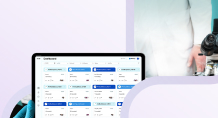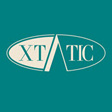In today’s society, there is an obvious need for efficient senior care. Elder care software is becoming an essential tool for helping caregivers provide individualized, effective, and secure support.
Meeting the needs of the aging population and not neglecting them whether in assisted living facilities or specialized nursing homes, is a key aspect in which software may help and provide less challenging solutions.
This article explores how technology enhances communication and improves the caregiving experience for elders and their families. Elder care software addresses common challenges faced by caregivers by offering advanced features such as data analytics, mobile accessibility, and prescription management. These innovations aim to support seniors in leading healthier and more dignified lives.
The role of elderly care software in caregiving
Elderly care software has the potential to significantly improve personalized and organized care for seniors. The role of such software is to focus on being a central platform where caregivers can access and manage critical information like their patient health records, care plans, and medication schedules.
If the patient is in a nursing home, integrating electronic health records (EHRs) into the platforms allows geriatric care managers to quickly review a patient’s medical history, so they have a complete picture of the senior’s health. Caregivers can easily check notes about residents’ daily needs, preferences, and any recent medical updates in a local area agency.
This software ensures that care is tailored to each individual’s specific needs and conditions, eliminating the need for constant family involvement by centralizing all services in one platform. This streamlined approach minimizes human error, prevents redundancies, and ensures that every aspect of a senior’s health and well-being is addressed. It also simplifies caregivers’ tasks and reduces the need for family members to be present for routine check-up appointments.
Elderly care software also enhances time management and organization for every geriatric care manager. Many platforms include automated reminders and alerts for tasks such as administering medication or scheduling health check-ups.
For example, a home health care giver might receive a prompt to assist a patient with their morning routine, followed by an alert for an afternoon medication round. By consolidating all tasks in one system, the software reduces the risk of missed appointments or overlooked medications.
How technology improves caregiver workflow
Technology has become an integral part of daily life for seniors, their families, and professional caregivers, including those in nursing homes or using eldercare locator services. Digital tools offer an effective way to enhance the quality of care and streamline its delivery. These innovations allow seniors to remain healthy, safe, and comfortable while continuing to live in their own homes.
Below is a list of some of the benefits after integrating technology in elderly care.
Improved connection
Social isolation is a common challenge for older adults living alone or elderly people with limited mobility. Technology can help bridge this gap by strengthening connections with family and friends and expanding their sense of community.
Even though live-in care providers offer companionship, they can still feel left behind sometimes. Video call platforms, messaging apps, and social media allow seniors to regularly interact with loved ones, stay informed about family updates, and engage in online activities that match their interests.
Ensuring connecting and engagement through technology can prevent loneliness and improve mental well-being.
Health monitoring
Technology provides health monitoring tools for tracking blood pressure, heart rate, and blood sugar from home. Many apps also track steps, mood, and meals, benefiting seniors with conditions like diabetes or heart disease. For age-related cognitive decline, apps with puzzles, games, and memory exercises can help maintain mental function.
Wearable devices like smartwatches and health monitors allow caregivers to track clients’ health data in real-time and receive automatic alerts for concerning changes. While less precise than specialized medical equipment, they provide a useful health baseline, enabling quick responses to medical needs or changes in living conditions.
Some apps also offer video conferencing for cognitive exercises, games, and psychological monitoring.
Management of medications
Managing several daily prescriptions can be difficult for many older people, especially if their schedules are complicated and this raises the possibility of confusion or missing doses.
Medication management applications and digital tools that remind users when it’s time to take each dose have made this work easier. These apps give families peace of mind and guarantee that prescriptions are not missed.
Many apps allow customization, such as setting precise reminders for doses and timing, tracking past prescriptions, and notifying users of missed doses. These features make medication management more reliable and personalized.
Enhanced security and safety
Smart home devices enhance security and safety for seniors, especially those with dementia or mobility issues. Tools such as motion sensors, smart locks, and automated lighting improve their quality of life and that of their caregivers. Smart locks provide controlled home access and add security, while motion sensors send alerts if seniors move at night. This helps prevent falls.
These are just some of the benefits technology offers in order to make life easier for everyone involved in the process of taking care of older adults. The essence is not just to make things less complicated, but also for elders to feel healthier, happier and supported.
Opportunities for improving communication and collaboration in elderly care
Effective communication and collaboration are essential for improving caregiving with elderly care software because many people are involved in the process. Elderly care software provides real-time messaging and communication tools that simplify interactions between caregivers, healthcare providers, and family members. This ensures everyone stays informed about the senior’s health and daily needs.
Many platforms offer secure messaging functions. These allow caregivers to report changes in a resident’s health or behavior and enable family members and doctors to make better decisions about adjustments to respite care. This communication relies on cloud-based software and is vital for coordinating around-the-clock care or providing frequent updates for chronic illnesses or recent hospitalizations.
Some platforms include a shared calendar and real-time messaging system for professionals and family members. Geriatric care managers can update families on daily activities, health changes, or upcoming appointments, such as physical therapy sessions. Family members can monitor the senior’s home care routine and receive notifications, bridging communication gaps between caregivers and loved ones. Updates may also include mobility plans with exercises the senior needs to follow, even on weekends spent with family.
Some apps integrate EHRs with secure messaging to document updates in real-time and share important information across the care team. This system reduces missed steps or errors in the care plan and ensures continuity in long-term care facilities, even with frequent staff changes. While no single platform is mandatory for professionals, collaborative care improves the environment, attitudes of those involved, and overall care management.
Data and analytics for better caregiving
Data and analytics are valuable tools in elderly care software that support personalized care and informed decisions. Access to detailed insights helps address individual needs and lifestyles.
Analytics platforms, on the other hand, allow caregivers and medical professionals to track trends in health measurements, detect early warning signs, and adjust self-care plans based on data-driven insights.
For example, there are apps that use data tracking to examine important health indicators like shifts in weight, mobility, or cognitive function. Caregivers are alerted if a trend indicates that a resident has a decline in their mental or physical well-being in order to prevent further deterioration. This allows them to take early action, such as modifying daily activities or scheduling a medical examination.
Another practical use of healthcare analytics software in long-term elderly care is monitoring the effectiveness of medication management. This feature helps caregivers confirm whether medications are taken as prescribed and identify missed doses. Apps can also detect patterns explaining why patients miss doses, such as fatigue, forgetfulness, or side effects. Caregivers can make adjustments, such as rescheduling doses or changing the administration method, if data shows a resident frequently misses an evening dose.
Predictive analytics offer another way to enhance caregiving. They use AI to analyze a senior’s behavior patterns, such as eating, sleeping, and activity levels. They alert care providers to deviations, such as a significant drop in physical activity. This helps determine whether the change is due to mobility issues or symptoms of depression.
Early detection of these subtle changes allows caregivers to respond quickly and prevent more serious health problems. These data-driven features in senior care software directly improve seniors’ quality of life.
Internet of things in elderly caregiving
To expand on applications for monitoring seniors’ health and ensuring their safety at home, we can look at examples of using IoT – a network of physical devices connected to the internet that collect and share data.
Smartwatches are valuable tools for seniors, especially those who live alone. They help track activities such as daily steps and heart rate. They can also send reminders to walk, sit, or rest as needed. These devices enhance daily routines and promote well-being. Beyond improving overall condition, smartwatches support prevention, intervention, and early detection of diseases.
Optimizing comfort with remote adjustments for room temperature or lighting adds another layer of home automation to improve the daily living for seniors. Automated door unlocking, for example, is helpful for those with limited mobility or during emergencies. Additionally, security systems, panic buttons, and alert systems provide extra peace of mind for families.
Some daily activities can also be automated, such as meal preparation with smart kitchen appliances or medication management with automated dispensers. These tools promote healthy eating habits and timely medication intake while giving seniors a sense of independence and freedom from relying on family members at home.
Finally, fall detection devices can automatically alert providers of home health care services in the event of a fall. This ensures timely assistance and reduces the risk of serious injuries or complications. Voice-activated assistants, video calling devices, and online platforms for remote communication are additional tools that improve interactions between seniors and their caregivers.
AI video analytics solutions
After addressing the benefits of incorporating technology in seniors’ homes, it is important to focus on improving facilities in nursing homes and hospitals.
Traditional elder care depends on constant human supervision in nursing homes or private care. This raises privacy concerns and requires significant staffing and resources, which can make it unsustainable. The risks of human error and compromised seniors’ autonomy also highlight the need for solutions that balance privacy with quality and efficient long-term care.
One solution is to use an AI video analytics tool. This technology applies artificial intelligence to analyze video content in real time or from recordings. It identifies patterns, detects anomalies, and extracts actionable insights without human involvement. In elderly care, it enables non-intrusive monitoring to provide timely assistance and support independence, improving both safety and the quality of care for seniors.
AI video analytics offer some very key advantages:
- 24/7 continuous monitoring without the need of a caregiver or family member;
- Real-time feedback and reports;
- Detection of potential emergencies or any unusual activities;
- Discreet surveillance that respects the individual’s privacy and autonomy;
- Elders don’t feel the constant need for assistance or supervision.
In hospitals or nursing homes, AI video analytics tools allow staff to monitor bed occupancy and receive alerts when bed availability decreases. They also provide information on the number of occupants in specific spaces and identify unused equipment, such as wheelchairs or beds left in corridors, while tracking how long they remain unattended. These alerts help staff address safety concerns promptly and ensure all facilities remain accessible.
By integrating advanced video surveillance analytics, facilities can effectively monitor all areas, including gardens and parking lots. Alerts for unusual or potentially risky activities play a vital role. In dementia care units, where tensions can escalate quickly and cause confusion or unrest, analytics help identify potential security concerns.
The next section will focus on the importance of addressing safety and security in elderly care facilities.
Addressing safety and security in elderly care facilities
Data security is crucial when talking about elderly care software in order to protect sensitive patient information. Key measures include strong encryption and role-based access controls to make sure that only authorized personnel have access to specific data, with end-to-end encryption safeguarding communications.
Secure authentication mechanisms, such as multi-factor and biometric authentication, can further improve security and prevent unauthorized logins. Data minimization practices reduce the amount of personal information stored, while clear data retention policies ensure outdated records are regularly purged to minimize exposure.
Regular security audits and vulnerability assessments, involving third-party experts or ethical hackers, can also help identify and resolve potential weaknesses as well.
Compliance with regulations like HIPAA is essential. Staying informed about legal obligations will help special facilities and nursing homes in avoiding costly penalties. Educating caregivers, clients, and staff on data security best practices, through regular training and awareness initiatives, can create a culture of security within the facility or home. These practices allow for a balance between innovation and protection of sensitive data in care giving services.
Strategies to improve elderly care management
Last, but not least, we shouldn’t forget to mention that effective care management for older adults requires a complex approach. Before we end this topic, there are three points to shortly refer to so you can improve care quality – personalized planning, active patient involvement, and evidence-based practices.
Effective individual plans
Whether at home, in a hospital, a special service facility, or a nursing home, any older adult needs an individual approach to their needs and condition. In order to be as effective and supportive as possible, anyone involved in the process should take an active role in creating detailed, personalized care plans so it addresses each person’s unique circumstances.
This process starts with assessing the patient’s health status. It includes evaluating physical, mental, and social factors. A multidisciplinary team of nurses, social workers, and other healthcare professionals is then involved to ensure all aspects of treatment are addressed. Adaptability and setting clear, achievable goals are essential for creating an effective individual plan.
Patient engagement
If elderly people are actively involved in their own health management, they become more independent and the chance of their fast improvement is bigger. Educating patients about their health conditions and treatment options can give them a sense of responsibility for their own condition. Using simple language and visual aids can help them understand complex medical information.
Patients voicing their concerns and asking questions can make them feel comfortable while discussing their own health. Involving family members or personal caregivers in the medical support process can also ensure the patient follows the care plan at home.
A patient’s active engagement is also a good prevention for a caregiver burnout. Including digital tools like mobile apps or wearable devices to track health metrics and provide reminders can make the whole process easier for everyone.
Evidence-based interventions
Keeping up with the latest research on elderly care and available software solutions demonstrates trustworthiness and a commitment to improving care quality.
Selecting evidence-based interventions and proven approaches saves time and resources, regardless of your role in enhancing elderly caregiving.
Discover how we can help outsource Healthcare projects efficiently Speak to an expert today, and see how our on-demand IT talent and augmented teams can efficiently deliver value at every step of your roadmap.

Conclusion
To summarize, software for elder care is vital for providing seniors with individualized, safe, and effective support. Meanwhile, it also improves everyday management, communication, and condition monitoring.
Features such as electronic health records and real-time care promote independence and safety. Digital tools, including platforms, apps, IoT, and AI analytics, offer preferred options for enhancing senior living and home care services.
These innovations benefit not only seniors but also caregivers, families, and other professionals involved in decision-making. They ensure higher-quality care while respecting seniors’ autonomy and dignity, whether they live in their own home or a care facility.
By integrating personal care with tools for monitoring and management, facilities can improve financial performance while addressing the growing needs of elderly care.
This balanced approach enhances the quality of support for most people and builds a foundation for effective, dignified, and compassionate elder care.

















